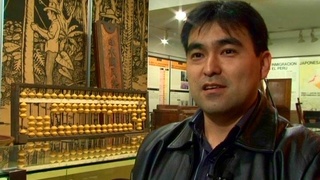Interviews
Being a Nikkei today (Spanish)
(Spanish) Being a Nikkei.... You know this word started to appear as part of conversations beginning this past decade... by the end of the 80’s. However, it is a word that gained currency as a result of its frequent use. Like every word, it is a result of frequent use. For example, we can come to an agreement that the word “chair” describes what you and I have in our minds. That is “chair”. We know that Nikkei is a Japanese descendant from Japan, but the interesting part is how this came up in academies, conventions, seminars, and how the population turned it on their own. “Jap” is a popular word. “Of the eye” is a popular word. But in the schools, seminars, people were not going to talk about “the Japs”, “Of the eye”. So the word Nikkei was created, and the interesting thing is how this word, by the citizen, by the Nikkei, the standard Nikkei, has made it theirs in less than 10 years. They themselves describe themselves as Nikkei. Interesting. Why? It’s because we’re a very demanding and intelligent culture. We absorb what we see, and we understand the issue. But now I think that “Nikkei” is going to go beyond that. The word, the concept Nikkei is going to go beyond the biological. There is going to be a moment when Nikkei becomes a way to categorize working people, very close people. There is even going to be a moment in the future of Peru when people say, as they say, “work like a negro” or “smoke like Chinese in bankruptcy”, They are going to say “he seems like a Nikkei”, a person that works a lot, quietly, or does not complain, or something like that.
Date: February 26, 2008
Location: Lima, Peru
Interviewer: Harumi Nako
Contributed by: Asociación Peruano Japonesa (APJ)










